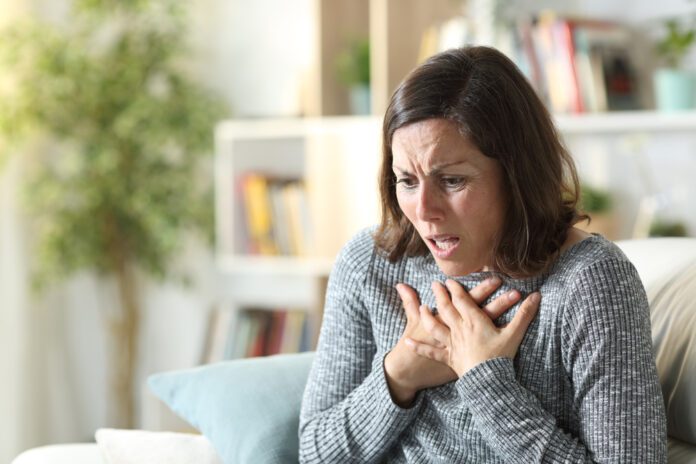Overview Of Wheezing
Wheezing is a high-pitched whistling sound that occurs during breathing. The noise is made when air moves through narrowed breathing tubes in the lungs.
Commonly Associated With
Sibilant rhonchi; Asthma; Bronchiectasis; Bronchiolitis; Bronchitis; COPD; Heart failure
Considerations
Wheezing is a sign of breathing problems. The sound of wheezing is most obvious when a person is breathing out (exhaling). It may also be possible to hear wheezing when breathing in (inhaling).
This sound most frequently comes from the small breathing tubes (bronchial tubes) deep in the lungs. It may also be due to a blockage in larger airways or occur in people with certain vocal cord problems.
Causes Of Wheezing
Causes may include:
- Asthma
- Breathing a foreign object into the airways that lead to the lungs
- Damage and widening of the large airways in the lungs (bronchiectasis)
- Swelling and mucus buildup in the smallest air passages in the lungs (bronchiolitis)
- Swelling and mucus buildup in the main passages that carry air to the lungs (bronchitis)
- COPD, especially when a respiratory infection is present
- Acid reflux disease
- Heart failure (cardiac asthma)
- Insect sting that causes an allergic reaction
- Certain medicines (particularly aspirin)
- Infection of the lungs (pneumonia)
- Smoking
- Viral infection, especially in infants younger than the age of 2
Exams & Tests
A health care provider will perform a physical exam and ask you about your medical history and symptoms. Questions regarding your wheezing may include when it started, how long it has lasted, when it is worse, and what may have caused the wheezing to occur.
A physical exam may include listening to the sounds of the lung (auscultation). If your child has symptoms, the provider will make sure your child did not swallow any foreign object.
Tests that a doctor may perform include the following:
- Blood work, possibly including arterial blood gases
- Chest x-ray
- Lung function tests
A hospital stay may be necessary if:
- Breathing is particularly difficult
- Medicine needs to be given through a vein (IV)
- Supplemental oxygen is required
- The person needs to be closely watched by medical personnel
Treatment Of Wheezing
Take all of your medicines as instructed.
Sitting in an area that has moist, heated air may help relieve a few symptoms. This can be done by using a vaporizer or by running a hot shower.
Other
When to contact a medical professional
Contact your health care provider if wheezing:
- Occurs for the first time
- Occurs with significant shortness of breath, bluish skin, confusion, or mental status changes
- Keeps occurring without explanation
- Is caused by an allergic reaction to a bite or medicine
- If wheezing is severe or occurs with severe shortness of breath, you should go directly to the nearest emergency department.



